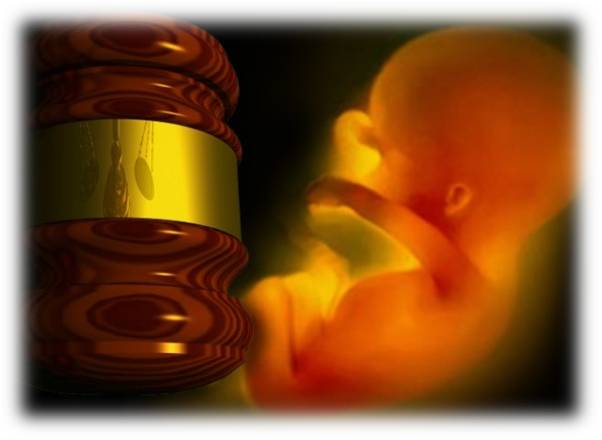In a ruling issued today, the Alabama Supreme Court urged the United States Supreme Court to overturn Roe v. Wade, saying it’s time the federal court recognize legal rights for unborn children.
The Alabama court issued a ruling today in a case where a criminal was charged with murder under the state’s unborn victims law for killing an unborn baby as a result of his homicide of a pregnant mother. Alabama Gov. Bob Riley, a Republican, signed the law a decade ago that would provide additional protection and justice for pregnant women and their unborn children. The measure allows prosecutors to charge criminals with a second crime when they attack a pregnant mother and kill or injure her unborn baby.
The law is referred to as the “Brody Bill” in memory of Brody Parker, the unborn son of 23-year-old Brandi Parker of Albertville, who was 8 months pregnant with Brody when she was fatally shot in July, 2005.
Sponsored by Sen. Bradley Byrne, a Republican, the measure treats an unborn child as a victim if killed or injured in an assault on the pregnant mother. Previously criminals were only charged with assaulting the mother. The legislature voted for the bill unanimously.
The Alabama court issued a unanimous ruling today in the case of Jesse Phillips. He was convicted in 2012 of killing his pregnant wife during an argument at a car wash. Judge Tim Riley sentenced 36-year-old Jessie Livell Phillips to death for the Feb. 27, 2009, shooting that killed his wife, Erica Droze Phillips, and their unborn child. A jury in June 2012 found him guilty and put him on death row for the slaying.
Court documents indicate that Phillips became angry because his wife had not changed the wet diaper of their young daughter. He subsequently shot Erica Phillips in the back of the head, leaving her body lying in one of the car wash bays; the 23-year-old died early the next morning at Huntsville Hospital.
Click here to sign up for pro-life news alerts from LifeNews.com
Phillips’ capital murder case was the first in Alabama to utilize “Brody’s Law” that allowed unborn children to be counted as a second victim in homicide cases. The conviction was challenged the Alabama Supreme Court today upheld it, saying, “the value of the life of an unborn child is no less than the value of the lives of other persons.”
But in a concurring opinion, Justice Tom Parker went even further, saying that the US Supreme Court should “overrule” Roe.
The Alabama justice is not the first to urge the Supreme Court to reverse its decision.
Earlier this year, the Eleventh U.S. Circuit Court of Appeals criticized the Supreme Court’s abortion decisions, calling them an “aberration of constitutional law.”
While disagreeing with the Supreme Court, the court of appeals acknowledged it is not the Supreme Court, and thus affirmed the lower court’s decision that found Alabama’s law prohibiting dismemberment abortions of live unborn babies, known as Dilation and Extraction (D&E), violates the High Court’s decisions. The three-judge panel’s decision reflects its reluctance to overturn the law, but its allegiance to its role as an intermediate appellate court under the authority of the Supreme Court’s previous decisions.
In her special concurrence, Judge Joel Frederick Dubina opined:
I write separately to agree on record with Justice Thomas’s concurring opinion in Gonzales v. Carhart, 550 U.S. 124, 168-69, 127 S. Ct. 1610, 1639-40 (2007) (Thomas, J., concurring), with whom then Justice Scalia also joined. Specifically, Justice Thomas wrote, ‘I write separately to reiterate my view that the Court’s abortion jurisprudence, including Casey [Planned Parenthood of Se. Pa. v. Casey, 505 U.S. 833, 112 S. Ct. 2791 (1992)] and Roe v. Wade, 410 U. S. 113, 93 S. Ct. 705 (1973), has no basis in the Constitution.’ Id. at 169, 127 S. Ct. at 1639. The problem I have, as noted in the Chief Judge’s opinion, is that I am not on the Supreme Court, and as a federal appellate judge, I am bound by my oath to follow all of the Supreme Court’s precedents, whether I agree with them or not.









